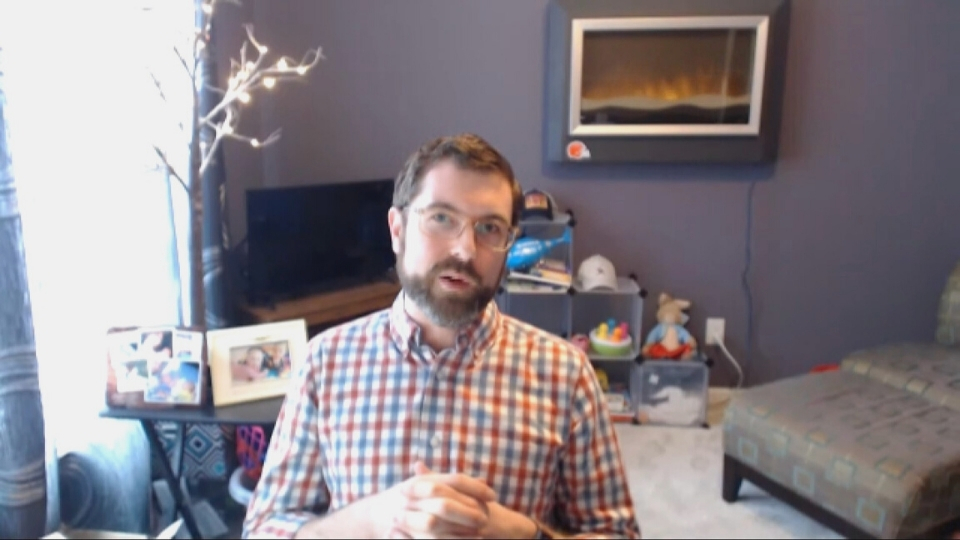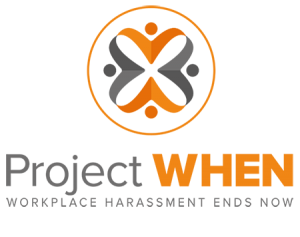Workplace change management for consolidation and relocation of brands: A case study on media and entertainment company office transformations How WarnerMedia embraced workplace change management to successfully combine brands and transition to a new office setting Time Warner, now known as Read More
SCG’s interview on corporate perceptions about flexible and remote work arrangements The benefits of flexwork and work from home WKYC studios, Cleveland’s NBC affiliate, interviewed Stegmeier Consulting Group’s Matthew Stegmeier about the status of flexible and remote work amidst the COVID-19 pandemic. Read More
Stegmeier Consulting Group has long been a supporter of 1 Million for Work Flexibility, an advocacy group that promotes the benefits of flex work. 1 Million for Work Flexibility (1MFWF) encourages organizations to offer flexible working to their employees, which in turn Read More
Today’s workplace is incredibly demanding. Companies haven’t been replacing laid off employees, leaving the remaining employees to pick up the pieces. This created discontent, disengagement and disconnect or mass exiting. Now, employers are finally concerned about acquiring and retaining talent. As a result, Read More
67 percent of human resources professionals surveyed in the 2015 Workplace Flexibility Study believe their employees have a “balanced work-life.” But when you ask employees, you hear a different story. Recent research shows that employees struggle to find the right work-life balance, with more than two-thirds of today’s U.S. workers struggling to balance their personal and professional lives.
Why the disconnect?
Source: www.talentmgt.com
A 4-day — or compressed — workweek is offered as an option to at least some employees at 43% of companies, according to the Society for Human Resource Management. But only 10% of those companies make it available to all or most of their employees.
It’s a perk more likely to be found at small companies, 14% of which make it available to all or most of their workers, while only 5% of large companies do the same.
While the concept of a compressed workweek isn’t new — it’s been common among nurses and emergency medical personnel, for instance — it’s not the norm for most jobs….
Source: money.cnn.com
Interested in a sure-fire way to attract and retain the best possible workers? Ask yourself this: is your organization harnessing the power of flexible work arrangements?
We recently discussed that an organization’s flexibility with work schedules is one of the top factors that can lead to higher employee morale. With a talented, more selective generation entering the workforce, offering an extra day off weekly or an ability to work from home when desired, will likely give your organization a recruiting edge over the competition.
Of course like with any change, a divergence from the traditional Monday through Friday, 9-5 work week will bring questions. What day, or days, can we close early or give our employees off completely? Who is the best fit for remote work? How do we even decide which flexible working arrangements work best for us?
Fortunately, Stegmeier Consulting Group has the ability to answer these questions and more. Utilizing our proprietaryFlexMatch Assessments (which can be customized to your organization) we can help arm leaders with the ammunition needed to determine the most suitable candidates for working remotely or participating in a flexible working arrangement. We can then help review and craft policies related to the program, as well as establish training for individuals new to remote work. We also specialize in developing training for managers, who under these new circumstances, would have to learn to lead individuals they can no longer see in-person.
Stegmeier Consulting Group can assist with a wide range of challenges involved in implementing a workplace change initiative. Contact us to find out how our services can help your organization.
https://stegmeierconsulting.com/contact/
Changing the way organizations manage workplace change
Several months ago, I was talking to a college senior about her career plans. She wanted a job with flexible hours, and I asked why. The young woman said she wanted the freedom to take a short nap right after lunch when her energy flagged the most and the ability to work late at night when her brain was sharpest.
If I had made a comment like this when looking for my first job 16 years ago, I would have been laughed out of the room. But coming from a college student today, the request doesn’t sound all that strange.
Source: www.themuse.com
The infusion of the Millennial generation into the workforce has laid the groundwork for significant workplace changes to take place over the next 15 to 20 years. This article, in fact, suggests Millennials may go as far as actually abolishing the idea of a 9-5 office environment all together by the year 2030!
Seem like a radical idea? Perhaps. It certainly would be a break away from a longstanding tradition of how, when, and where Americans conduct business. Fortunately, organizations today are getting a taste of the workplace of the future by implementing or expanding flexible work arrangements and work from home programs.
Organizations should not be quick to dismiss these changes as fleeting trends or office fads. With an astounding 77% of Millennials stating flexible hours will make them more productive, it’s beyond time for employers to consider the work preferences of their people moving forward.
If your organization is seeking to implement work policies that will help attract, retain, and take advantage of the immense potential of young talent, contact Stegmeier Consulting Group.
https://stegmeierconsulting.com/contact/
Changing the way organizations manage workplace change
How would you describe flexible scheduling? Does a standard definition come to mind?
In a new SHRM survey on flexible work arrangements (FWAs), which surveyed 525 HR professionals from a randomly selected sample of SHRM’s membership, “FWAs,” “flex time,” “workplace flexibility,” “flexible scheduling,” etc. are defined under the following definition:
“… A dynamic partnership between employers and employees that defines how, when and where work gets done in ways that work for everyone involved (including families, clients and other stakeholders).”
Source: www.tlnt.com
In order for organizations to have effective flexible working arrangements, senior leaders must ensure that offerings are made in earnest and that middle managers and employees are well-informed of the policies. This article reveals that a whopping 50% of employees in this survey find out about flexible work arrangements while on the job. Ideally, flexible work arrangements should be trumpeted as benefit during recruitment efforts, as they can be a great draw for today’s top talent.
It comes as no surprise then that within the organizations polled, most see those arrangements used by only 1 to 25 percent of the workforce despite their availability. Certainly not every employee needs to take advantage of a flexible work arrangement, but it would be interesting to see employee utilization numbers after proper steps have been taken to ensure all employees are fully aware of how, when, and where they are able to conduct their work. And of course, as the article mentions, leading by example goes a long way; anytime senior leadership works flexibly, mid-level managers are more inclined to do the same, and in turn, be more open to the employees they supervise following suit.
We at Stegmeier Consulting Group understand that communicating new or changing workplace policies regarding flexible work arrangements can be challenging and need handled with no small amount of delicacy. In many cases, clients we work with prefer us to draft timely communications to their employees that can address questions or concerns up front. We also have experience in crafting and revising flex-work policies to ensure your organization takes an effective approach to flexible work arrangements. Let us help your organization get everyone on the same page when it comes flex-work. As the definition mentioned in the article implies, flex-work is a dynamic partnership between an employee and employer, and each side must do their part to ensure the program’s success!
Stegmeier Consulting Group can assist with a wide range of challenges involved in implementing a workplace change initiative. Contact us to find out how our services can help your organization.
https://stegmeierconsulting.com/contact/
Changing the way organizations manage workplace change
Over the past 10 years we’ve seen a lot of new innovation within the tech startup community. What prevents large organizations from innovating at the same rate as small tech companies?
Source: www.forbes.com
This article presents us with an interview of Gabe Cooper, a leading mind in the software field. Mr. Cooper discusses the need for larger tech organizations to become more “agile and resilient”, especially in the face of so many successful startup tech companies sprouting up these days. Mr. Cooper stresses the importance of agility and flexibility when it comes to a business model as opposed to a rigid, straight-forward approach that lacks the innovation shown by startup competition.
We at Stegmeier Consulting Group believe that agility and flexibility is just as important in the physical work space as it is in a corporate strategy. Larger companies hoping to develop, maintain, or improve an innovative culture may want to take time to study the landscape in which their employees work. Does this environment allow for collaboration? Can employees move freely about the workplace without losing their ability to be productive? And what remote working capabilities exist so employees spend more time generating ideas rather than commuting? At SCG, we possess the tools and experience that can answer these questions and guide your company through a successful change initiative.
Stegmeier Consulting Group can assist with a wide range of challenges involved in implementing a workplace change initiative. Contact us to find out how our services can help your organization.
https://stegmeierconsulting.com/contact/
Changing the way organizations manage workplace change
There are loads of myths about flexible working that may be putting you off, so we bust some of the most common ones.
Source: www.totaljobs.com
Op-ed pieces and interviews like this one can be a great source for new ideas, but they often do not have statistical sources listed. Never base your case for workplace flexibility on statistics from unknown sources! Be sure to fact-check before presenting to colleagues. Chances are, they will want to know the source as well.











